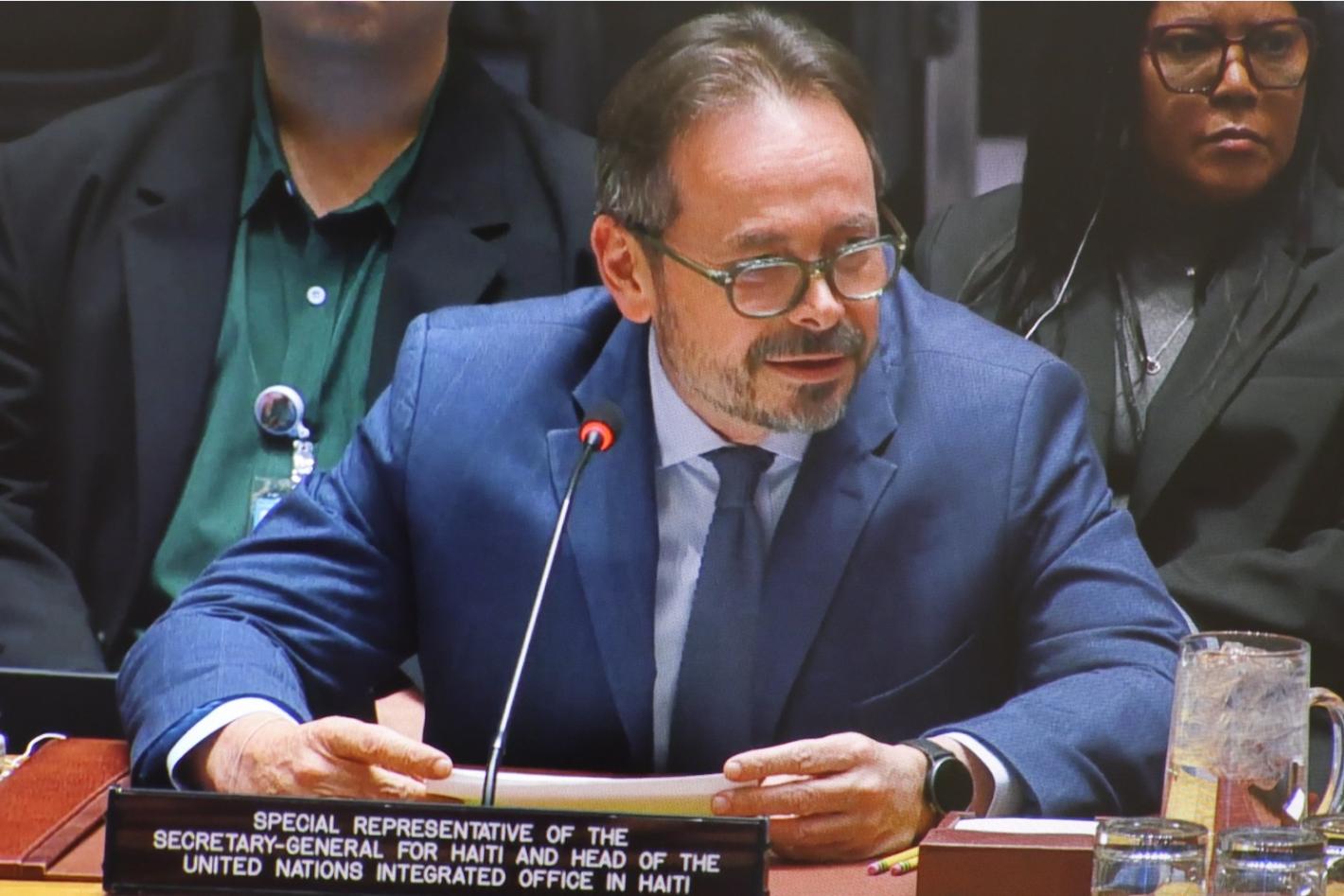Unrest in Haiti: Their impact on Human Rights and the State’s obligation to protect all citizens
Report on the human rights violations and abuses during the protests of 2018 and 2019 in Haiti
Executive Summary
This report, prepared jointly by the Human Rights Service ("HRS") of the United Nations Integrated Office in Haiti and the Office of the High Commissioner for Human Rights, presents the main human rights concerns related to the protests that took place between 6 July 2018 and 10 December 2019 and related recommendations
.
This period saw intensified mass mobilization by the political opposition and civil society. Protests that started relatively peacefully in the initial phases of the demonstrations in July, October and November 2018 became increasingly violent over time. The February, June, and September to December 2019 demonstrations also witnessed increasing number of barricades and road-blocks that severely hampered public’s right to free movement and access to essential services in some regions.
In this context, the HRS investigated the impact of these demonstrations on the population’s ability to exercise their rights, the human rights violations and abuse committed, and the State’s response to these infringements. While noting the protesters’ right to peaceful assembly and the root causes of these demonstrations, the HRS has documented violation and abuse of the rights to life, security of the person and effective remedy, as well as the right to peaceful assembly and freedom of expression.
Overall, the HRS observed a 333 per cent increase in the number of human rights violations and abuses against the rights to life and security of the person during the reporting period. In Haiti’s ten departments, the HRS documented 131 human rights violations and abuses during the 2018 protests, including against 19 women and nine minors. In 2019, 567 cases of human rights violations and abuses were documented, mostly during the September to December protests, including against 43 women and 47 minors. Overall, non-state actors instigated 66 per cent of the incidents while the disproportionate use of force by law-enforcement agencies accounted for 34 per cent of the documented cases. During the same period, the Haitian National Police also registered within its ranks 30 injured and two killed in the protests. Notably, road barricades affected the population’s rights to freedom of movement, access to health, education, and food. It also affected the administration of justice and the right of persons deprived of liberty to be treated with humanity. Few investigations have been launched on these violations and abuses. As a result, no one has been held legally accountable and no reparation was paid to the victims.
In the 2019 demonstrations, the barricades blocking access to hospitals and passage of ambulances, and attacks on these health facilities, severely impacted the daily lives of the Haitian people, particularly those in a vulnerable situation. It restricted the freedom of movement and access to basic services such as healthcare (including sexual and reproductive health), education, and food. “Passage fees” imposed by protesters and criminal elements further impeded the movement of people and goods, which further exacerbated the economic hardship.
The recommendations of this report are premised on Haiti's national and international legal obligations. Their implementation is essential to protect the people’s right to peaceful assembly, prevent human rights violations and abuses during demonstrations, and provide effective remedy for the victims. In the context of the current electoral process, it is also critical for the State to address the population’s underlying grievances related to impunity, corruption, structural inequality and adequate standard of living in order to restore public confidence and prevent future unrests.
Link to the Report:
https://binuh.unmissions.org/sites/default/files/2021.01.15_rapport_manifestations_2018-2019.pdf


